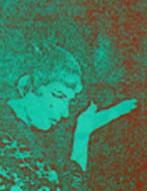I drink Organic Rice Milk now which is made from brown rice (the healthiest type) it’s enriched with Vitamin A, D, B-12 and Calcium. What do you think about this type of milk? The carton claims it’s what vegetarians drink.
Buying what is essentially heavy boxes of water with only 5% of the weight as actual rice content seems to be a bit shoddy to me especially since the amount of rice is exceptionally cheaper than what one of those containers costs. If it's to save time then I think you could find much better sources of nutrition.
http://www.nutrition...nd-pasta/5707/2You'll get most of what's in brown rice if you make your own rice milk; packaged rice milk was probably cooked up days if not weeks prior to your purchase/consumption date for which the "enrichment" is necessary to fill in the gaps where the natural amounts decayed during that time. You take a multivitamin so the "enriched" element makes no difference which leaves you with another overpriced product implying to have some kind of benefit comparable to real milk by association of appellation.
Making your own "milk" is easy. It can be made from rice, oats, rye, quinoa, etc. Basically any type of grain and even beans/legumes and yes, even nuts like almonds. Making 2-4 days worth at one time is perfectly fine if it's kept refrigerated; make the consistency stronger so all that is needed before drinking is adding some hot/boiling water. Consider getting one of these as they keep hot water at the ready:
http://nihonhacks.co...otto-for-pasta/They're available at most any Asian grocery and shopping area.
The trick is just using a small amount of grain/beans to volume of water and cook on a low heat simmer for 30-120 minutes. If you can soak your grains/beans before cooking (discard soak water) try putting them through a blender as this will increase surface area and speed cooking. There's a Mexican spiced rice drink called horchata which is close to what we're trying to accomplish here but horchata is not cooked and has most of the uncooked rice removed before serving. It's ratio is 5 cups water to 1 cup rice so try that but realize you'll need to fine tune your own recipe (or follow the Carb-gram ratio to water-grams in that Rice Milk product you bought). It's up to you if you want to add honey, sweeteners, or spices. Goji berries can be used for both flavoring and tonification in these type of recipes. Ah, and another great and very helpful recipe is stewed prunes: excellent for Cooling the Liver and fixing constipation by lending mucilaginous fluid for the lining of the intestines.
Goji berries can be had for 1/3 the price if bought at Asian groceries. Ask for something called Boxthorn fruit; it's usually drier than their Wh0leF00ds store brands bu tthat means they're probably in better shape: no preservatives and less decay from removed moisture.
Do read the Cautions at this link if you consider their use:
http://www.rootdown....i Zi?query=gojiDuring autumn I would stick to oat, rye, and almond milks. Check the TCM links in my profile for info on seasonal foods and use that as a template. "Milks" like this are great to keep you hydrated during the heat of summer and the dryness of winter and help to pack nutrition into every form of consumption all year round.
If you set up one day a week for the 3 hours it would take to make a "grain milk"
and that roast chicken and marrow broth recommendation you'd gain much more for your health than you would lose from that time.
Vitamins/Minerals:
Find yourself a good b-12 supplement. Check around as there are many brands.
Calcium is had in
exorbitantly larger amounts in seaweeds than in dairy.
The easiest seaweed to use and find is wakame. It has ten times the amount of calcium of milk, four times the amount of iron of beef, and a very beneficial amount of iodine almost non-existent in diets lacking seaweeds. You buy it dry and add it to the cooking process for things like soups, oatmeal and beans; even just hydrate it and then add it as-is to anything really. Konbu, aka kombu and kelp, is a firmer type that comes in convenient 1"x6" strips that you toss in with your beans (I prefer this for beans as it has more beneficial properties than wakame but needs the full 30+min. cooking time to become soft enough to enjoy eating...impossible for oatmeal cooking times). Cooking beans with konbu helps makes their proteins more easily digestible and adds the "***most highly mineralized food" into your diet. [***from the Pitchford book in my profile]
Vitamin D you can get from fish oil supplements (if not tablet supps). For as little a day as needed this shouldn't be too much of a cost. (1-2 grams...each gelcap is equal to 1g...EPA and DHA values can vary greatly. I prefer a much higher ratio of EPA than DHA despite most every source claiming the benefits are from DHA. More DHA gives me strange head sensations and I actually feel mentally slower. This is my favorite brand:
http://shop.genuineh...p;CategoryID=66It has 500mg-EPA and only 25mg-DHA per capsule. You could get by on just one of these a day; take with lunch when the Heart is at it's peak activity:
http://en.wikipedia....iurnalCycle.jpgGood link here for amounts of Vitamin D in foods (very small portions of certain fish seem to be best bet):
http://www.bchealthg...es/hfile68e.stm
Edited by REGIMEN, 22 September 2008 - 07:56 AM.














































